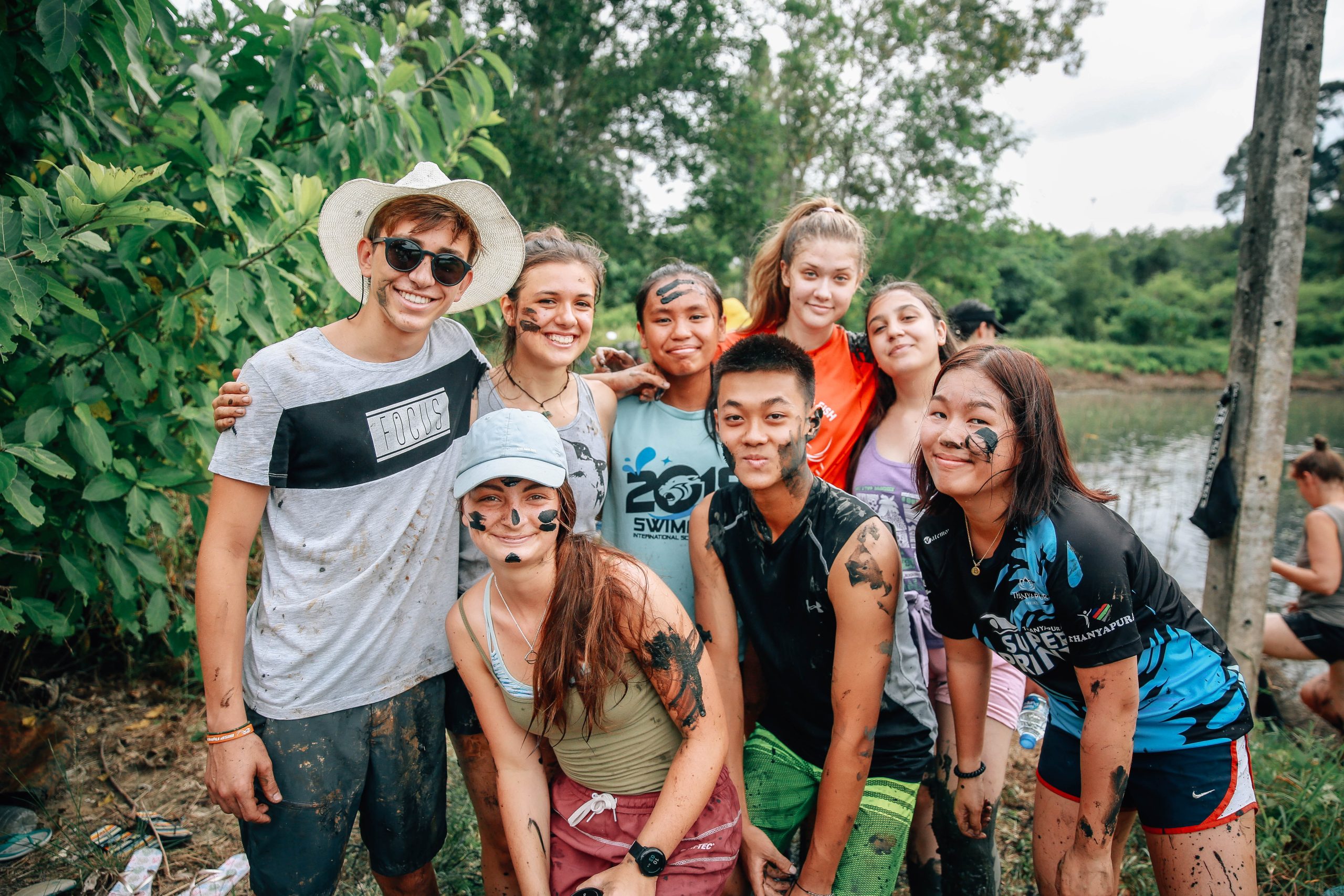Academic life at UWC
Most students attending UWC between the ages of 16 and 19 study the globally recognised International Baccalaureate Diploma Programme (IBDP), which is offered at all UWC schools and colleges. It is a challenging curriculum that allows students to explore a range of subjects and ideas, while developing their creativity and learning about the importance of activity and service in the community.
In fact, UWC played a key role in crafting the IBDP back in the 1960s, and the ties between the IB and UWC remain close decades later.
The IBDP aims to “encourage students across the world to become active, compassionate and lifelong learners who understand that other people, with their differences, can also be right.” It is respected in the best universities worldwide for the balance it strikes between breadth and depth of subjects and its focus on service, communication, teamwork, leadership and critical thinking.
“Meskipun IBDP terkadang cukup luar biasa dan ada banyak yang harus dipelajari, secara keseluruhan itu membuat saya jauh lebih percaya diri dan mengajari saya cara belajar. Tahun pertama saya di perguruan tinggi terasa jauh lebih mudah daripada tahun kedua IBDP saya. Saya jauh lebih yakin dengan hal-hal yang saya katakan karena saya menelitinya, dan saya jauh lebih baik dalam menulis. ”
– Leonor, alumni UWC Mahindra College
Which subjects can students take for the IBDP?
Which subjects can students take for the IBDP?
IBDP students take a total of six subjects, one chosen from each of the following groups:
Siswa umumnya mempelajari tiga mata pelajaran pada tingkat standar dan tiga mata pelajaran di tingkat yang lebih tinggi. Pada tingkat yang lebih tinggi, mereka diharapkan untuk menunjukkan pengetahuan, pemahaman, dan keterampilan yang lebih besar. Mata pelajaran yang tersedia dapat bervariasi antar sekolah UWC , seringkali mencerminkan lokasi geografis dan area fokus mereka. Selain ujian, kursus IB juga melibatkan komponen kursus yang memungkinkan siswa untuk mengejar topik penyelidikan mereka sendiri dalam suatu mata pelajaran. Banyak siswa menghubungkan pembelajaran akademik mereka dengan minat mereka yang lebih luas di bidang-bidang seperti keberlanjutan, pemahaman antarbudaya, dan keadilan sosial.
IBDP subjects at UWC
IBDP subjects at UWC (in English)
As well as the six subject groups, students complete three core components of the IBDP, which are central to the philosophy of the programme. These are:
Extended Essay (EE): Students choose and investigate a topic of special interest, and develop the independent research and writing skills required at university level. The essay is typically written in one of the student’s six subjects and must be no more than 4,000 words in length. Students are supported in the research and writing process by an academic supervisor.
Theory of Knowledge (TOK): The course encourages students to reflect on the nature of knowledge and strengthen connections between their different subject areas. It is assessed through an exhibition and a written essay.
Creativity, Activity, Service (CAS): Taking responsibility, developing social, creative and outdoor skills, as well as learning to approach others with empathy are at the heart of the programme. Students engage in a variety of projects that aim to develop these skills, while at the same time actively engaging with their local community.
Other academic options at UWC
Other academic options at UWC
Once a UWC national committee-selected student is accepted by the college, they are able to apply to attend other IB programmes available at some of our UWC schools. Options available include:
- Program Terkait Karir Sarjana Muda Internasional (IBCP) – di Pearson College UWC dan UWC Maastricht
Seperti IBDP, IBCP adalah program pendidikan ketat yang menawarkan siswa kesempatan untuk berspesialisasi dalam bidang tertentu. Di UWC, siswa IBCP mengikuti minimal dua kursus IBDP, studi terkait karir dan inti IBCP.
- Program Percontohan UWC: Jalur Transformasi Sistem (STP) – di UWC Atlantik dan UWC Asia Tenggara
Siswa yang mengejar STP sedang bekerja menuju Diploma IB penuh, tetapi sedang mempelajari kombinasi empat mata pelajaran IB reguler di samping program interdisipliner yang dirancang khusus untuk mengembangkan keterampilan, sikap, dan kemampuan yang mereka butuhkan untuk mengatasi tantangan sistemik yang kompleks dan saling bergantung. Kursus yang dipesan lebih dahulu ini dihitung untuk dua mata pelajaran IB tingkat standar dan dinilai bukan melalui ujian, tetapi melalui analisis dampak otentik, refleksi, dan portofolio proyek.
